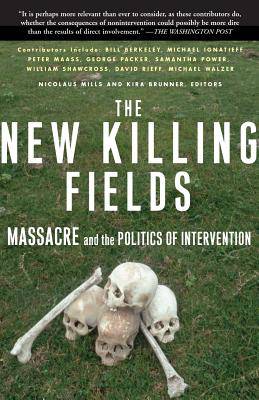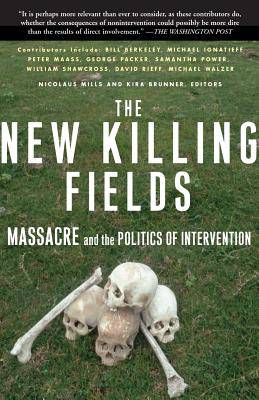
Bedankt voor het vertrouwen het afgelopen jaar! Om jou te bedanken bieden we GRATIS verzending (in België) aan op alles gedurende de hele maand januari.
- Afhalen na 1 uur in een winkel met voorraad
- In januari gratis thuislevering in België
- Ruim aanbod met 7 miljoen producten
Bedankt voor het vertrouwen het afgelopen jaar! Om jou te bedanken bieden we GRATIS verzending (in België) aan op alles gedurende de hele maand januari.
- Afhalen na 1 uur in een winkel met voorraad
- In januari gratis thuislevering in België
- Ruim aanbod met 7 miljoen producten
Zoeken
The New Killing Fields
Massacre and the Politics of Intervention
Kira Brunner, Nicolaus Mills
Paperback | Engels
€ 32,95
+ 65 punten
Omschrijving
The New Killing Fields revisits Cambodia, Yugoslavia, Rwanda, and East Timor-sites of four of the worst instances of state-sponsored killing in the last half of the twentieth century-in order to reconsider the success and failure of U.S. and U.N. military and humanitarian intervention. Through original essays and reporting by, among others, David Rieff, Peter Maass, Philip Gourevitch, William Shawcross, George Packer, Bill Berkeley, and Samantha Power, The New Killing Fields reaches beyond headlines to ask vital questions about the future of peacekeeping in the next century. In addition, theoretical essays by Michael Walzer and Michael Ignatieff frame the issue of both past and future intervention in terms of today's post-Cold War reality. As human rights abuses increasingly occur in "failed states" such as Afghanistan, which pose international security threats, the future of human rights will not be, as it once was, considered solely a question of the beneficence and charity of the West. The prominent group of reporters and academics assembled here ponder these questions in light of their extensive experience, and reveal a fascinating set of conclusions, and further questions, about the future of human rights in the next century.
Specificaties
Betrokkenen
- Auteur(s):
- Uitgeverij:
Inhoud
- Aantal bladzijden:
- 288
- Taal:
- Engels
Eigenschappen
- Productcode (EAN):
- 9780465008049
- Verschijningsdatum:
- 7/08/2003
- Uitvoering:
- Paperback
- Formaat:
- Trade paperback (VS)
- Afmetingen:
- 137 mm x 203 mm
- Gewicht:
- 312 g

Alleen bij Standaard Boekhandel
+ 65 punten op je klantenkaart van Standaard Boekhandel
Beoordelingen
We publiceren alleen reviews die voldoen aan de voorwaarden voor reviews. Bekijk onze voorwaarden voor reviews.









